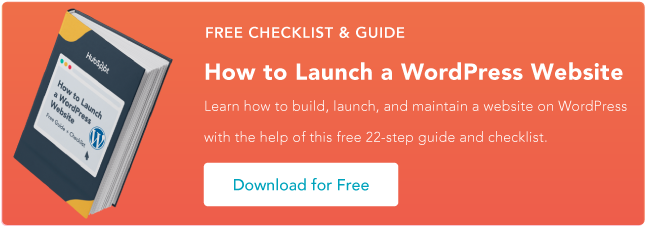[ad_1]
One of the most important decisions you’ll make when launching your business online is which web hosting platform to use. This impacts virtually every facet of how your online store performs — from how fast and secure it is, to how easy it is to manage. The problem? It can be really tricky to choose the right one.

I’ll walk you through exactly what web hosting is, the types of hosting you should know about, and key features you should look for to set your business up for success.
What is ecommerce web hosting?
Simply put, web hosting is the service that provides your website with a place to live on the internet so that it can be accessible to your customers. Ecommerce hosting, though, refers to a hosting service that is specifically designed and optimized for online stores, ensuring the smooth operation of such websites.
It usually comes with some extra benefits and tools, tailored to the needs of ecommerce sites. (Think: Shopping cart software, SSL certificates, SEO optimizations, scalable resources, and more.)
What are the types of ecommerce hosting?
Ecommerce hosting is not one size fits all, so it’s helpful to have an idea of the different options available. That way, you can make an informed decision regarding which will better suit your ecommerce website. Here are the three types of ecommerce hosting options you should know about:
Shared Hosting
Shared hosting is the most affordable and popular type of hosting. With shared hosting, multiple websites live on one server and share resources like RAM (computer memory) and CPU (processing power). It is a very practical option and it doesn’t require technical knowledge as the server configurations are already done, and the server maintenance is handled by the hosting provider.
Since the resources on a shared hosting server are limited, it’s not the best choice if you have a ton of traffic to your website. Make sure you choose a suitable hosting plan for your needs with enough web space and a sufficient amount of website visits that can be handled by the shared server. If you don’t, you risk having server issues that could frustrate customers.
Dedicated Hosting
With dedicated hosting, you will get a whole physical server only for your website. Because of that, you can take advantage of top speed, performance, and security for your online store.
Having a dedicated server may seem tempting and convenient, but keep in mind that it’s usually the most expensive option. It may also require some skills to upkeep server setup, software installations, and updates. (Of course, you can also pay a hosting provider for a fully managed dedicated server, but remember: It will come at a cost.)
Cloud Hosting
Cloud hosting consists of several servers, connected in a network. It is a very versatile solution, especially for a growing website with high traffic as it allows you to scale its resources. You can add more in times of traffic spikes and remove them afterward. In terms of pricing, cloud hosting has considerably higher pricing compared to shared hosting options.
Hosting isn’t the only thing you need to consider when building out an ecommerce website, however — you’ll also need to choose an ecommerce platform.
How to Pick an Ecommerce Platform
So you’ve picked an ecommerce hosting provider for your online shop, now what? Next, you’ll have to add an ecommerce platform so your customers can actually buy your products. Luckily, many hosting providers offer an easy integration with shopping cart platforms and bundle it with their hosting plans.
Premium hosting providers with added-value services, like SiteGround, for example, offer ecommerce hosting pre-installed with WordPress & WooCommerce. These platforms balance ease of use with functionality, which make them ideal for beginners and professionals alike. Additionally, using an ecommerce host that already has a connection with shopping cart platforms is a good idea because it saves you the hassle of installing and configuring the storefront. With bundled hosting, you get a completely functional website, content management system, and ecommerce functionality all together.
To pick an ecommerce platform, consider the following:
-
Does it come bundled with hosting services?
-
Are there any resources for SEO available?
-
How secure is it?
-
How much money will it cost — does it fit into my company’s budget?
-
Is it easy to maintain, or will I need to hire someone to do it for me?
Once you answer these questions, you can begin to consider the tools and services you need for your ecommerce site — and start sourcing a provider that has them.
Must-Have Ecommerce Tools and Services
When choosing hosting for your online business, pay extra attention to the additional features provided on top of the hosting service. There are specific solutions implemented that can make a huge difference in the way your website performs. Since website speed and security are the two most important factors for a stable online store, we’ve divided what you should look out for into these two categories.
Tools/Services for a Speedy Site
Make sure your hosting provider has these features to ensure a speedy site.
CDN
If you have an international business, a Content Delivery Network (aka CDN) is an absolute must-have for your store. With this technology enabled, your website will load fast for international visitors, despite their geographical location and where the website is requested from.
CDNs make multiple copies of your website’s content. Then, your CDN distributes them on servers with different geographical locations. When a visitor accesses your website, it will load from the closest location so it is as fast as possible.
Caching
Another amazing speed-boosting technology is caching. Similar to the CDN, caching makes copies of your web pages’ data and displays them to the visitors instead of processing all the code needed every time a page is requested. This allows your ecommerce website to load times faster.
Running your ecommerce on WordPress? We have listed the best caching plugins to boost your website speed.
Latest PHP version
If your online store is running on some of the popular ecommerce platforms based on PHP (WordPress/WooCommerce, Prestashop, Magento, Drupal), it is a good idea to use a hosting provider that offers the latest PHP versions.
Oftentimes, they come up with significant optimizations and updates that can directly improve your website performance. It’s even more valuable if their server PHP setup is optimized for high performance and efficiency.
If you are looking for excellence and custom setups, premium web hosting providers not only offer you the latest version of PHP but also let you choose among a selection of PHP versions, to better fit your ecommerce needs.
Integrated Speed & Performance Optimization Tools
Your host may also offer integrated performance-optimizing solutions. If they do, you should take advantage of it for your ecommerce site. For example, SiteGround has a WordPress plugin that delivers advanced frontend, media, and caching optimizations. And if your web host offers integrations, plugins, or other solutions that can automate some parts of that work for you, don’t miss to take advantage of it.
Must-have security features
When building a reputation for your ecommerce business, website security is number one. After all, if visitors don’t trust your website, why would they input sensitive data such as their address or credit card information to complete a purchase? These security features help build trust and keep your customers safe.
SSL
As an online store owner, you’ll have to keep and deal with lots of customer data. Ensuring it is safe is not only a fundamental requirement for any site on the web, but it also establishes you as a trustworthy merchant in the eyes of your customers.
Having an SSL certificate is the first step in that direction. It guarantees that the connection between your store and your clients is secured and encrypted. There are different types of SSL certificates, so when browsing hosting providers do your research, and if you need to, discuss with them what SSL types they offer.
Automatic backups
Your online store needs regular backups so you don’t lose critical data, client information, and product content. Most of the web hosting providers offer backup services. It’s smart to prioritize hosts offering daily backups and easy restore functionalities in case of such an emergency.
Additional Security-related Tools & Services
The best way to secure your website is through prevention. Since this is an ongoing and important task, reliable web hosts offer such services as additional security plugins. This can give you extra peace of mind that your ecommerce store is protected not only on the server but also on its application level. Another key but often undervalued service hosting companies provide is Technical Customer Support. Note that regardless of how well you manage your website, tech issues may happen at some point.
In such moments, your host’s support team can help you fix your site or guide you on how to do it. So it is crucial to research and check client reviews related to the customer support service of the host that you plan to use. They need to be available 24/7, knowledgeable, and of course, fast in response time.
Get more from your ecommerce hosting provider.
Your choice of a hosting provider will significantly impact your website speed, safety, and therefore, how your business is perceived. Because of this, it is crucial to conduct thorough research before making a decision. Having in mind all the key features and tools listed above, your ecommerce store will have the right foundation to make it a success.
[ad_2]
Source link
![How to Choose Web Hosting for Your Ecommerce Store Download Now: How to Launch a WordPress Website [Free Guide + Checklist]](https://no-cache.hubspot.com/cta/default/53/b5ae83fa-3a09-487e-a43a-4833bf87ab87.png)

